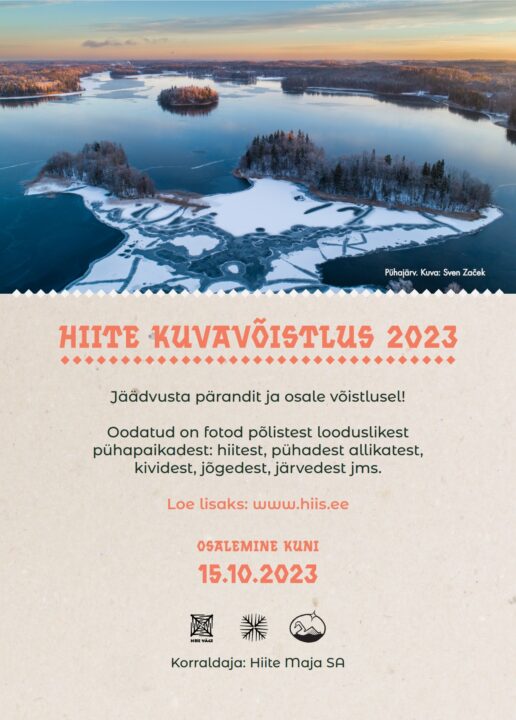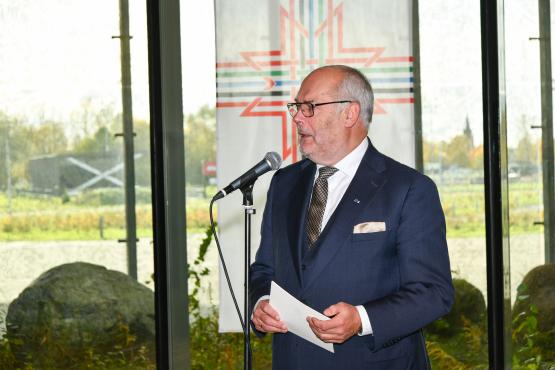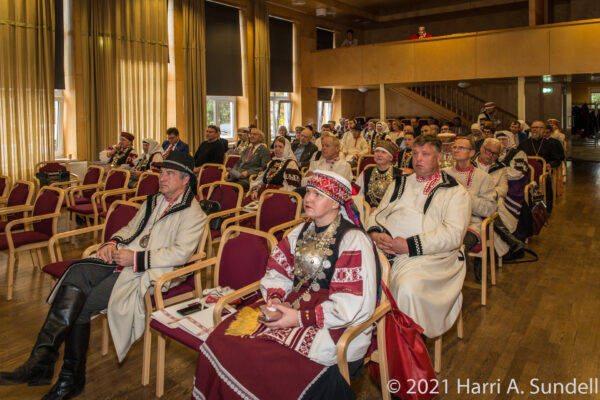Photo Competition of the Groves has begun
The annual Photo Competition of the Groves organised by Hiite Maja Foundation has begun, where photos and videos of groves and other historic sacred natural sites are welcomed. The purpose of the competition is to record and value the cultural and natural heritage of indigenous sacred sites and to encourage people to get to know them.

The photo competition is held in Estonian, Finnish, and Russian and focuses on the common heritage of the Finno-Ugric peoples.
The main prize of the competition is 1000 euros, the kindred peoples’ prize is 300 euros, the Finnish prize is 300 euros and the prize for those under 16 is 200 euros. In addition, special prizes for Vana-Võrumaa, Virumaa, islands, etc. are displayed. Due to international sanctions, no financial prizes will be awarded to residents of the Russian Federation and Belarus this year either.
The Photo Competition of the Groves has been held since 2008, and this year is the 16th in a row. It is known to be the only photo competition of its kind in the world.
A grove – sacred natural site – is a forest, tree, rock, body of water, landform, or land that has been considered sacred already by our ancestors. Sacred sites also include pruned trees (ristipuu) associated with old funeral customs, boulders of coastal villages, healing places and sliding stones. The main practices associated with sacred sites are prayer, healing, offering gifts, making fire, celebrating holidays and commemorating the deceased. Many sacred sites are now in active use.
There are an estimated 5,000 historic sacred natural sites in Estonia, of which approximately 1,500 are listed on the map of sacred natural sites. The most famous places are Otepää Pühajärv, Suur and Väike Taevaskoda, Kaali Pühajärv, Pank Bank, Saula Blue Springs (Siniallikad), Jägala Waterfall, Tamme-Lauri Oak, Tartu Toomemäe Cupstone, the sacred linden of Ülendi, Võhandu Pühajõgi and others.
The Photo Competition of the Groves is organised by the Hiite Maja Foundation, the co-organiser in Finland is Taivaannaula Association. The competition is supported by: Estonian Cultural Capital, the Estonian Folklore Archive of the Estonian Literary Museum, Võru Institute, Mulgi Cultural Institute, Fenno-Ugria, Maavalla Koda, Tihuse Horse Tourism Farm, Tagavälja Farm, Alar Krautman Health Academy, Hiiepaik, LüüTürr and others.
More information (in Estonian):


